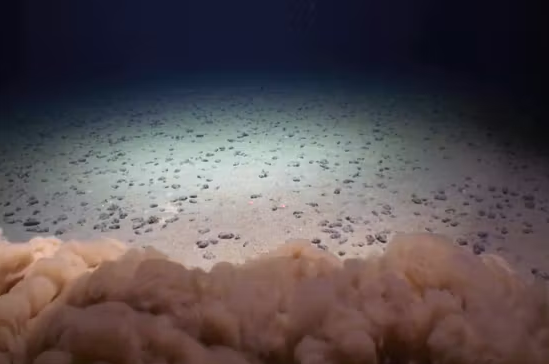A study published Thursday in the scientific journal Nature Communications reveals the risks faced by zooplankton if large-scale deep-sea mining were to take place. Extracting resources from the ocean floor endangers not only the biodiversity of the abyssal depths but also the rest of the water column.
According to the research, released on Thursday, November 6, by Nature Communications, deep-sea mining could jeopardize the entire marine food chain. In this study, seven researchers from the University of Hawai‘i at Mānoa (United States) examined the impact of particles released into seawater following the extraction of polymetallic nodules, which are highly coveted by the mining industry.
These valuable pebble-like nodules, rich in rare metals, must be separated from the seawater and seabed sediments that are brought up to the surface along with them. The resulting “wastewater”, which also contains fragments of the nodules, is then discharged back into the ocean.
To assess the ecological impact of this discharge, the researchers relied on data from a 2022 experimental mining test conducted in the Clarion-Clipperton Zone, a vast area of the Pacific Ocean located between Hawai‘i and Mexico.
Source: Le Monde




